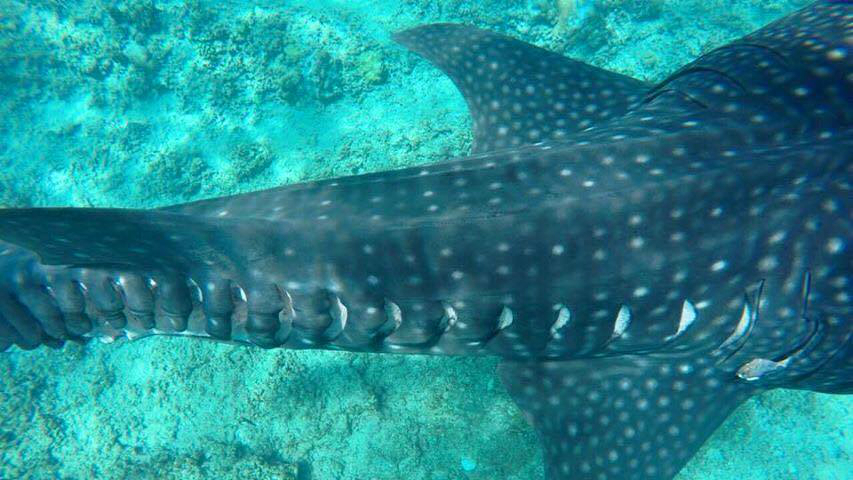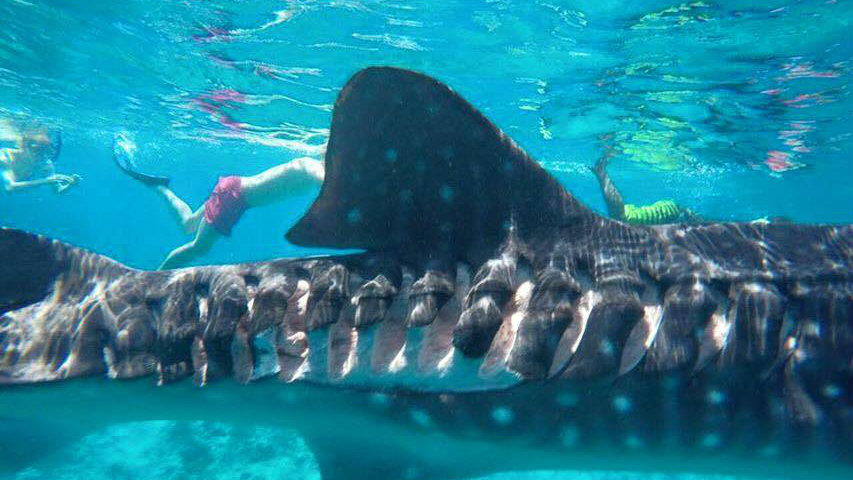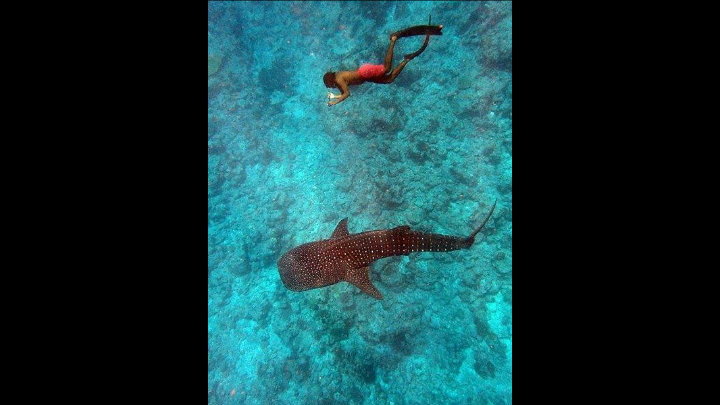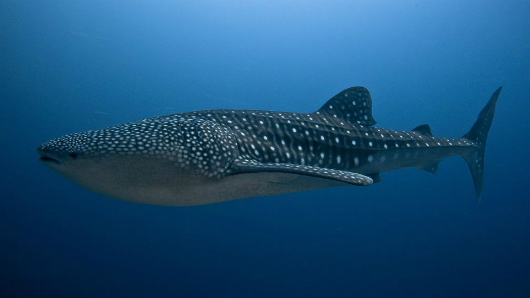Gangehi island resort in Alif Alif Atoll welcomed an unusual tourist this week, as a baby whale shark was temporarily accommodated before being released in the same spot it had been caught by fishermen earlier in the day.
The 1.5ft shark – named ‘Noomaa’ or Blue Flower by its hosts – was hailed by marine experts as “extremely rare” and a sign that there may have been a change in breeding cycles.
“The sighting of a neonate [newborn] whale shark in the Maldives is hugely exciting because of how rare such encounters are – there has only been a handful of neonate encounters recorded globally,” said Richard Rees, director of the Maldives Whale Shark Research Programme (MWSRP).
But whether Noomaa – who could grow up to 12 metres long, and weigh up to 21 tonnes – will be seen again remains a mystery, explained Rees, as little is known about the animals behaviour and breeding patterns.
However, guaranteed sightings of the species can be expected further south in Alif Dhaalu Dhangethi this weekend when three of the gentle giants – the largest known fish species – will swim through the streets.
The model sharks – designed and created by the local artists – will be joined by a giant green turtle, butterfly fish, and a manta ray as part of the second annual Maldives Whale Shark Festival.
Organised by the MWSRP, the festival represents the culmination of five months of community engagement which has produced artwork celebrating the atoll’s marine diversity.
Started as a scientific expedition in 2006, MWSRP has grown to become the only long-term organisation dedicated to study the iconic, yet vulnerable whale shark species in the Maldives.
Since that time, the programme has logged over 1,500 encounters with whale sharks as well as helping to establish the world’s first training manual to educate industry stakeholders on sustainable whale shark tourism.
A proliferation of boat strike incidents in the increasingly crowded Alif Dhaalu atoll demonstrates the need to protect the creatures as they play an increasing role in the tourism industry.
“The community needs to be invested in the preservation of this iconic fish. It’s essential that there is a good level of awareness as to the value of the whale shark to South Ari atoll and the country as a whole,” explained Rees.
“That’s what this festival is all about, raising awareness in a creative and fun way. Everyone who values the whale shark and it’s habitat, coming together and celebrating the largest fish on the planet and its significance to them and their region.”

A core part of the programme’s attempts to advance the field of whale shark knowledge while advocating for sound conservation policies involves encouraging community and industry stakeholder participation.
“This is just the beginning – we plan on putting the festival on the cultural calendar for the Maldives, bringing people from across the country and the world together to celebrate the rich marine and cultural diversity of the archipelago,” explained Festival Director Chloe Osborne.
The Maldives is unique as the only place known to have year-round whale shark populations, which have been protected under Maldivian law since 1996, and are classified as vulnerable by the International Union for Conservation of Nature (IUCN) – also a partner in Saturday’s festival.
This weekends efforts will help in the continued endeavour to uncover the answers to many of questions that remain about the lives of these ocean giants.
“The whale shark is a particularly challenging creature to research because of the amount of time it spends at depth and far out to sea. But anything we can learn helps us to make decisions about how to protect it,” said Rees.
Indeed, Noomaa’s surprise visit to Gangehi resort this week has raised more questions than it has answered – including whether he has headed south to attend this weekend’s festival.
While it could be surmised from Noomaa’s appearance that the Maldives must be a pupping site for whale sharks, Rees noted that it was also possible that he was swept into the archipalego by ocean currents and perhaps chased into shallow waters by predators.
“Truth be told no one really knows where whale sharks breed but it’s thought that it occurs deep down and far out to sea.”
“We hope that like many of the individual whale sharks we see Noomaa becomes a regular visitor to Ari atoll.”
The Maldives Whale Shark Festival carnival will take place in Alif Dhaalu Dhangethi this Saturday (December 6) at 1pm.

Related to this story
Maldives resorts, local communities participating in whale shark festival
Tourists attempting to ride whale sharks in South Ari Atoll
President launches Baa Atoll UNESCO Biosphere Reserve
Likes (4)Dislikes
(4)Dislikes (0)
(0) 





